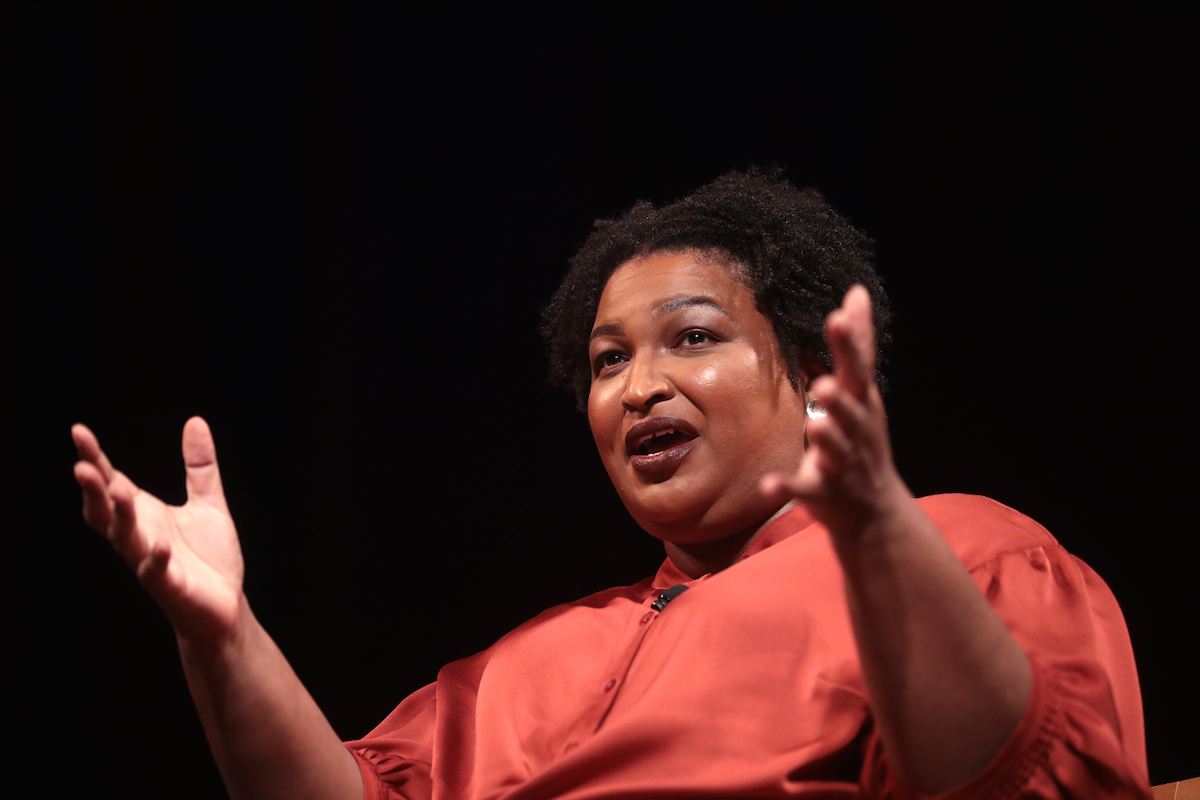
This article was written by Errin Haines for The 19th. It is republished here with permission via a Creative Commons license.
This month at an event in New York, I ran into Stacey Abrams, whose bid for Georgia governor I’d covered in 2018 and 2022 and whose work to fight voter suppression and expand voter participation I’ve covered for the better part of a decade.
I hadn’t seen or spoken to her in a while; I’d assumed we’d be chatting mostly about elections and voting, but there was an urgency in her voice on another topic: the backlash against diversity, equity and inclusion efforts in American society.
It’s also something I’d noticed and been paying more attention to in the wake of the Supreme Court’s ruling in June ending affirmative action in higher education. Edward Blum, the conservative lawyer who brought the case, didn’t stop there; his group, the American Alliance for Equal Rights, filed lawsuits challenging DEI programs at a law firm and a venture capital firm.
Just three years after the racial reckoning that made much of society examine the ongoing legacy and harm of systemic inequality, a parallel reckoning has also unfolded. It’s one driven by a sense of grievance from White American men, a movement that often co-opts women and even people of color, making them out to be victims of current efforts that are designed to right historic wrongs.
Such efforts, Abrams told me, are part of a larger strategy to roll back attempts to make our country more free and fair for women and people of color. It’s the same playbook that dismantled voting and abortion rights, aimed at rolling back racial progress in institutions across the country.
“The through line is that our progress as a nation, our economic uplift, our continued dominance, is predicated on full participation, and diversity, equity and inclusion is the roadmap to get us there,” Abrams said. “The threat of lawsuits, the threat of public castigation, the threat of being called out for doing right, is compelling some to retrench. That is dangerous.”
###
Abrams and I had both been following the latest attack on DEI in our home state of Georgia. Fearless Fund, an Atlanta-based venture capital fund founded by two Black women to address the disparity in financial support for businesses led by women of color, had been sued by Blum’s group in a federal court in August, accused of unlawful racial discrimination.
Businesses founded by women of color receive less than 1% of the total venture capital funding raised by U.S. companies. Yet, Blum’s argument in the case said that a $20,000 grant program specifically for Black women was “racially exclusionary.” A district judge initially said the fund has a free speech right to operate the program, but a conservative appellate court overturned the ruling days later.
Fearless Fund’s relatively small size, specific mission and location in the South with conservative-friendly courts made it a prime target for litigation, said Abrams. Women and minorities are members of “communities that have been relegated to the fringes of opportunity, who simply seek not parity, but equity,” she said.
“When you attack DEI, you are attacking the smallest portion of opportunity and you are throttling it,” she said. “You attack them because they are so small, because if you can stop them where they are, they cannot grow, they cannot do more.”
The case for DEI as an economic incentive and not just a moral one has been documented. A recent McKinsey report pointed to more profitable outcomes for more diverse companies.
There are parallels in other places where rights are being curtailed: When access to voting improves, turnout increases and is more diverse. When access to reproductive care is more available, it improves the lives of women and queer people. When the history taught in our public school is more inclusive and equitable, it helps more students to feel seen.
The racial backlash that comes with racial progress is predictable and has a pattern, Abrams said.
First, DEI opponents delegitimize the fundamental values of diversity and democracy. Next, they pursue litigation to undo the laws that have made progress possible. Last, they create legislation that attempts to make their litigation successes permanent.
Those pushing back against such efforts aren’t necessarily unprepared, Abrams said, but they have underestimated the ferocity on the opposing side.
“The challenge is that we see this cycle of attacks and our posture has to be that their attacks are going to be relentless, and that our response has to anticipate the tenor of the attacks,” Abrams explained.
Assuming that past victories cannot be undone is also a mistake, she warned. And allies must also get in the fight, even if they don’t belong to an affected group.
“You’re not losing anything by expanding the pie, whether you’re a small business owner, or a company or a PTA president,” Abrams said. “We are made stronger as a nation when we support others having access. Mobilization has to come from every person that wants to espouse the fundamental American values that we are a diverse nation that believes in equal access and equal opportunity and that everyone has an opportunity to participate.”
###
Dismantling affirmative action was only the beginning, and funds supporting women- and minority-owned businesses continue to find themselves in the crosshairs of conservatives looking to end DEI efforts. In Texas, women-owned Hello Alice, which provides resources to small businesses, is being sued by a White truck driver who claims he was discriminated against because he was ineligible to apply for a grant aimed at helping Black business owners.
Abrams is watching these fights play out as an attorney by profession and a veteran politician who worked to expand democracy before her failed gubernatorial campaigns. But she has stayed in the fight and says others should become more “confident and comfortable being right.”
“We’ve gotta start talking about this and pushing back and not being scared by the attacks that are coming at us,” she said. “There are a lot of us, we deserve a chance, and if we do our part, we deserve to win.”
Abrams and I don’t do the same thing; this is not a column endorsing her perspective or approach. But while defending diversity is exhausting work, and I speak from experience, I agree that it’s still worth it. It shouldn’t still be necessary to make the case that a more diverse and equal society benefits everyone and is central to who we say we are as a country. Our current politics and cultural climate make it so.
Join the conversation!
Find news, events, jobs and people who share your interests on Technical.ly's open community Slack

Delaware daily roundup: Vital conditions framework; Seaford center breaks ground; Staff shortage at the beach

Philly daily roundup: Student-made college cost app; Central High is robotics world champ; Internet subsidy expiration looms

Delaware daily roundup: Equity Action Summit video; DE Senate debates wind energy; Hydrogen hub listening sessions

